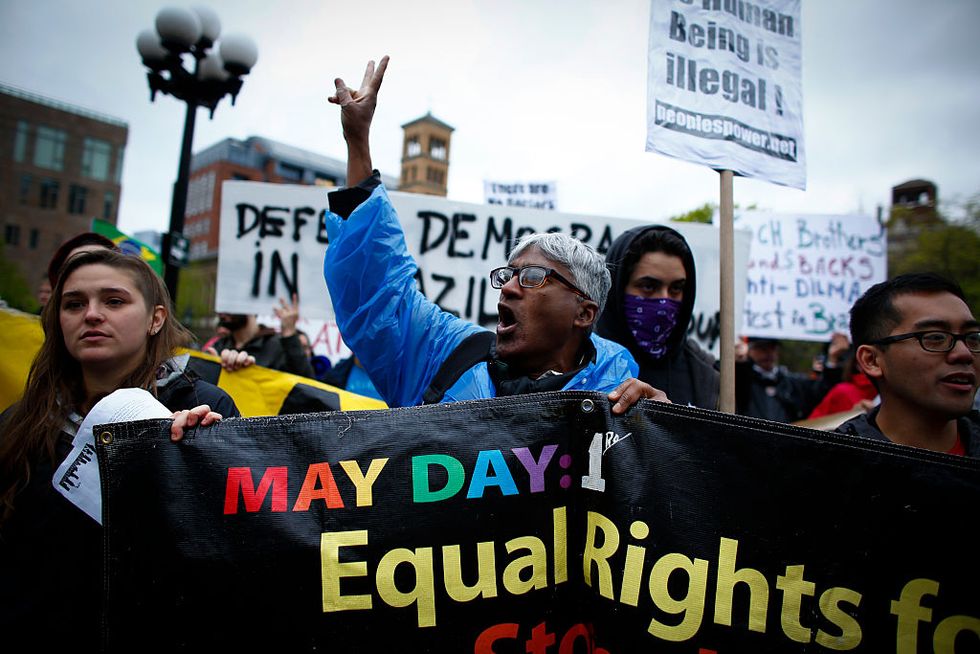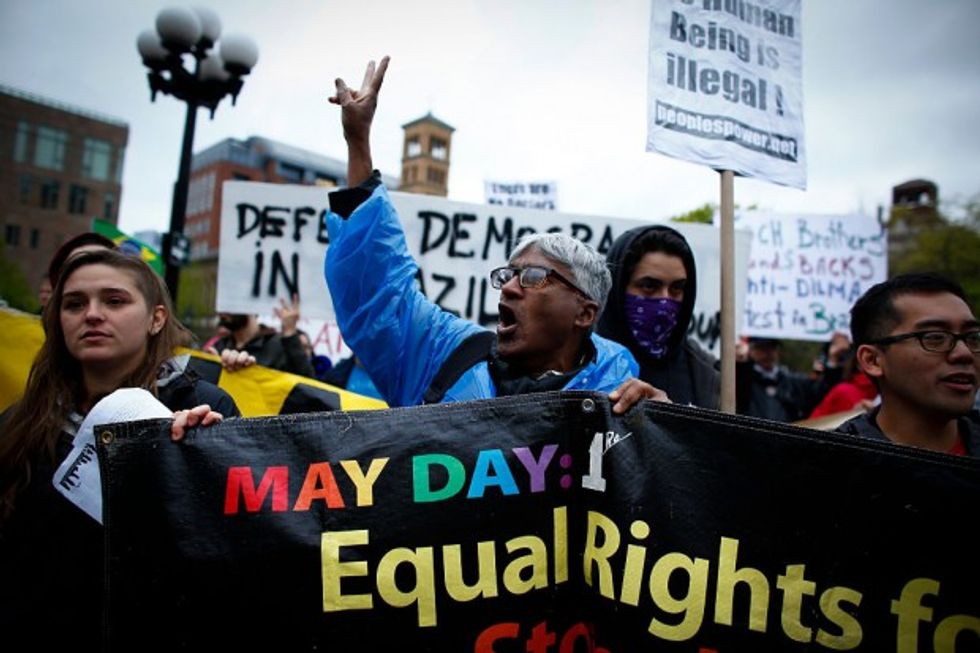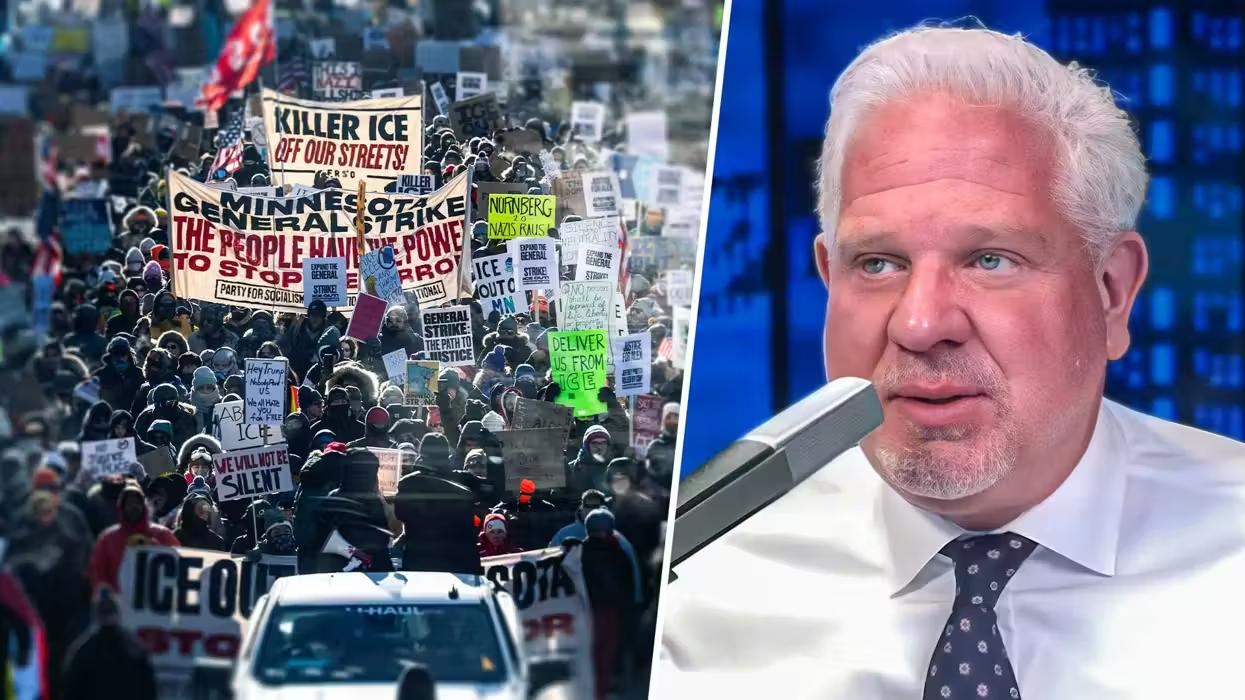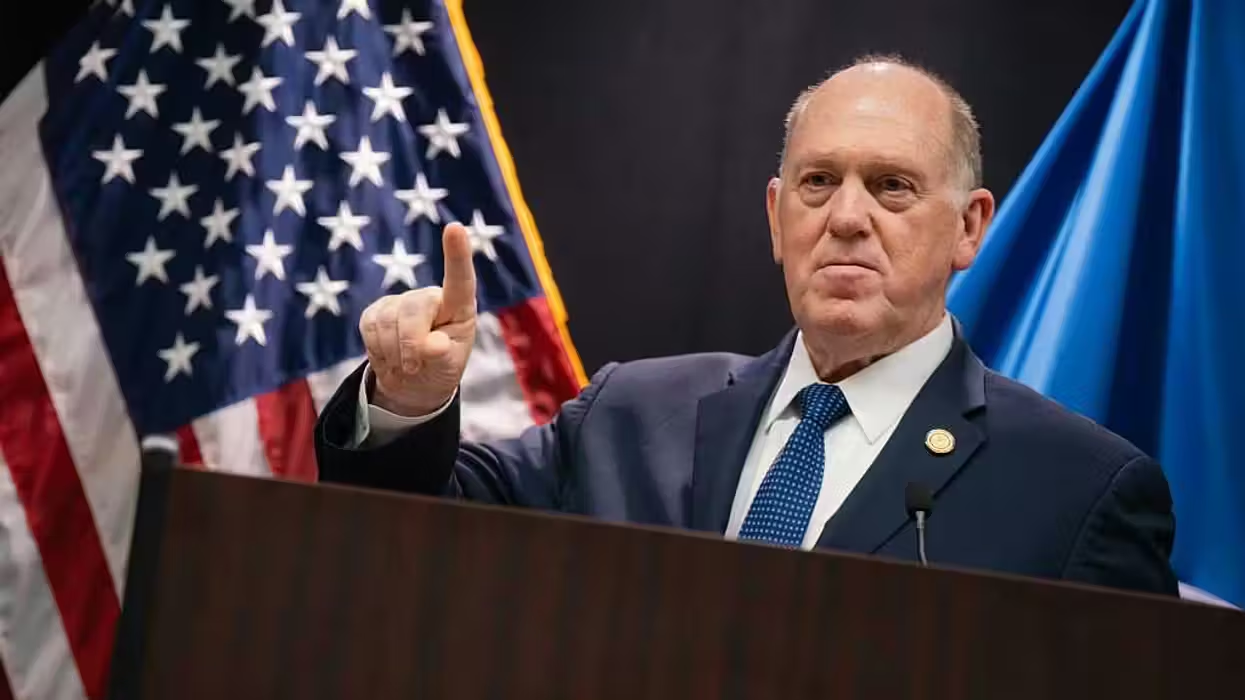This week, over 100 organizations across the country celebrated National Employee Freedom Week, a nationwide effort to educate union members about the rights available to them to opt out of union membership and at least a portion of union dues.
With the addition of West Virginia this year, a total of 26 states have passed right-to-work legislation that takes away a union’s ability to have a worker fired for refusing to join and pay the union.
But even in the other 24 states, union workers still have more rights than they might realize. Even in non-right-to-work states, workers can opt out of the political portion of union dues (which can be hundreds of dollars per year), and become an “agency fee payer.”
 Demonstrators participate in a May Day rally on May 1, 2016 in New York. May Day has shared a date with International Workers' Day since the 1880s. At the time, labor movements around the world were fighting for fair work accommodations like eight-hour workdays and unions. / AFP / KENA BETANCUR (Photo credit should read KENA BETANCUR/AFP/Getty Images)
Demonstrators participate in a May Day rally on May 1, 2016 in New York. May Day has shared a date with International Workers' Day since the 1880s. At the time, labor movements around the world were fighting for fair work accommodations like eight-hour workdays and unions. / AFP / KENA BETANCUR (Photo credit should read KENA BETANCUR/AFP/Getty Images)
This option is available in all 50 states. Unfortunately, this information is not made readily available by labor unions. Instead, it’s buried deep in lengthy collective bargaining contracts and is often restricted to short windows each year. In many school districts, teachers are given just a two week period to opt out of supporting the union political agenda. If they miss the window, they are stuck underwriting union politics against their will for another year.
The Supreme Court unanimously upheld workers’ freedom to opt out of union political dues in its 1977 decision Abood v. Detroit Board of Education. However, workers should also be free from being forced to support the union collective bargaining agenda.
In right-to-work states, union often refer to those workers who opt out of union membership as “free riders.” This argument has even advanced in court, as unions are using it to challenge right-to-work laws in Idaho, Wisconsin, and West Virginia. But in reality, those workers are “forced riders” – unions have lobbied for years to remain the “exclusive bargaining representative,” meaning that they represent all workers in the unit, dues-paying or not. They sought this provision, and now complain about it.
But not only do unions claim to not want to represent non-members, many non-members do not wish to remain beholden to the union negotiated contract. This was the basis of the lawsuit brought by California teacher Rebecca Friedrichs against her union that reached the Supreme Court this year.
Like many teachers, Rebecca found not only the union’s politics objectionable, but also their contract negotiations. For example, in some districts teachers are allowed to show up drunk to work several times before getting fired because of the union contract.
Thankfully, there is an easy policy solution to this issue, first developed by Michigan’s Mackinac Center for Public Policy – it is called “worker’s choice.” Simply put, unions should be free to represent only dues-paying members, and workers who do not wish to remain beholden to the union contract should be free to negotiate for themselves.
This policy – already introduced in the Michigan legislature – would eliminate the so-called “free rider” problem, continue to allow unions to represent those who wish to participate, and still expand worker freedom. States can pass this law now for public employees. Congress must act for the private sector.
While efforts like National Employee Freedom Week and policies like right-to-work and worker’s choice create accountability, there is more that can be done to ensure that workers truly have a voice at work.
Many Americans are unaware that generally speaking, when a union is voted in, they are essentially there forever. The process to decertify a union is prohibitively difficult. As a result, today just 6 percent of unionized workers nationwide actually voted for the union that currently represents them and 94 percent of union workers either voted against the union, or inherited representation voted in years ago.
This system is completely undemocratic. Americans vote for their representation in Congress every two years – they should be afforded the same opportunity to vote on their representation in the workplace.
Like worker’s choice, states can pass union recertification legislation immediately for the public sector, as Wisconsin did in 2011’s Act 10. The Employee Rights Act, which is supported by Americans for Prosperity and has over 130 cosponsors in Congress, would enact union recertification for the private sector.
The efforts of the National Employee Freedom Week coalition are crucial to inform workers about their rights unions aren’t telling them. But if we are to make unions truly accountable and responsive the workers they purport to represent, lawmakers must purse commonsense policy reforms like worker’s choice and union recertification.
Akash Chougule is the Director of Policy at Americans for Prosperity, the nation’s largest free-market grassroots advocacy organization with over 2.8 million activists across all 50 states. He specializes in labor, healthcare, and education policy.
–
TheBlaze contributor channel supports an open discourse on a range of views. The opinions expressed in this channel are solely those of each individual author.


 Demonstrators participate in a May Day rally on May 1, 2016 in New York. May Day has shared a date with International Workers' Day since the 1880s. At the time, labor movements around the world were fighting for fair work accommodations like eight-hour workdays and unions. / AFP / KENA BETANCUR (Photo credit should read KENA BETANCUR/AFP/Getty Images)
Demonstrators participate in a May Day rally on May 1, 2016 in New York. May Day has shared a date with International Workers' Day since the 1880s. At the time, labor movements around the world were fighting for fair work accommodations like eight-hour workdays and unions. / AFP / KENA BETANCUR (Photo credit should read KENA BETANCUR/AFP/Getty Images)






